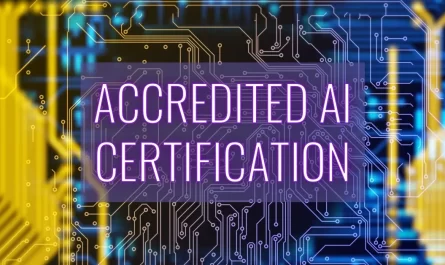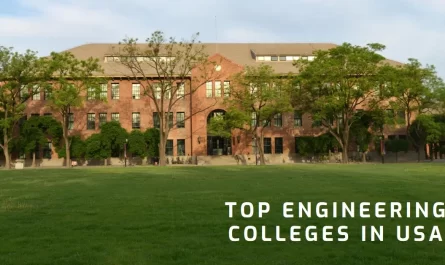In India, students who want to work in engineering and technology prefer the popular Bachelor of Technology (BTech) degree programme. BTech is a professional programme at the undergraduate level that blends what students learn in theory and how they do it in practice. Because of this, BTech focuses on equipping students for careers in software development, infrastructure, manufacturing and other fields.
This article explores the BTech courses, its admission process, types of specialisations you can choose, the topic areas part of the syllabus, how the course is arranged, fees and possible careers.
What is the B Tech Course?
The course of BTech is a four-year undergraduate programme that is divided into eight semesters. The course is meant to equip the students with a thorough grasp of engineering principles, scientific theory, mathematics and their application in practical situations.
This course is generally provided in a broad variety of specialisations like:
- Computer Science and Engineering
- Mechanical Engineering
- Civil Engineering
- Electrical and Electronics Engineering
- Information Technology
- Electronics and Communication Engineering
- Biotechnology
- Artificial Intelligence and Machine Learning
- Data Science
All specialisations modify the course curriculum to emphasise particular industries or technologies so that students can develop industry-specific skills relevant to ongoing market demands.
BTech Admission Process
The BTech admission process in India may be different for different universities or colleges. Yet, there are certain generic routes that students generally take:
- Entrance Exams
The majority of the top engineering colleges and universities in India take admissions through national or state-level entrance exams. The most sought-after ones are:
- JEE Main and JEE Advanced for IITs, NITs, IIITs and a number of central government institutions.
- State-Level Entrance Exams such as MHT-CET, WBJEE, KEAM and etc.
- University-Specific Exams private colleges might have their own entrance exams such as BITSAT, VITEEE, SRMJEEE, etc.
- Direct Admission
Certain private colleges also provide direct admission through Class 12 board exam marks or management quota seats. This option can avoid entrance tests but also has some eligibility criteria like a minimum percentage in science subjects.
- Lateral Entry
Diploma holders in engineering are able to enter the second year of BTech programme through lateral entry schemes presented by numerous institutions.
Knowing the BTech Syllabus
Key courses, additional elective subjects, labs and project activities make up the BTech syllabus. The course material moves from simple basic skills to difficult and specialised areas, as each semester goes by.
Popular First-Year Subjects:
- Engineering Mathematics
- Physics/Chemistry
- Programming in C or Python
- Engineering Mechanics
- Basics of Electrical/Electronics Engineering
Specialisation-Based Core Courses (from 2nd Year onwards):
- Computer Science: Data Structures, Algorithms, Operating Systems, Database Management
- Mechanical Engineering: Thermodynamics, Fluid Mechanics, Manufacturing Processes
- Civil Engineering: Structural Analysis, Construction Materials, Geotechnical Engineering
Electives and Laboratories:
Students select domain-related or interdisciplinary electives. Laboratory work is an integral part of each semester, encouraging hands-on experience.
Projects and Internships:
Most universities incorporate minor and major projects, internships, or industry visits into the curriculum to encourage experiential learning.
Final Year Emphasis:
students tend to work on capstone projects, engage in research and are encouraged to pursue electives that are aligned with their career aspirations or higher education.
BTech Fees: What to Expect
Fees for BTech in India can differ greatly depending on the institution type:
Type of Institute Approximate Annual Fees
- Government Colleges: ₹20,000 – ₹2,00,000
- State Engineering Colleges: ₹40,000 – ₹1,50,000
- Private Universities: ₹1,00,000 – ₹4,00,000 or more
- Deemed Universities: ₹1,50,000 – ₹5,00,000+
There can be additional charges for hostel fees, exam fees, study materials and lab fees. Merit, entrance exam marks, or economic status may lead to scholarship opportunities.
Career Opportunities After BTech
Leaving with a BTech degree opens a wide range of career opportunities in the private and government sectors. Some of the most prevalent avenues are:
- Campus Placements
Most colleges have an agreement with leading companies in IT, manufacturing, telecom, core engineering and analytics. Top recruiters are TCS, Infosys, Wipro, HCL, L&T, Cognizant, etc.
- Government Jobs
Engineering graduates can opt for government sector opportunities through tests such as:
- GATE (for PSU hiring)
- UPSC (for services like IES)
- SSC JE and other state-level engineering examinations
- Entrepreneurship
With technical expertise and exposure to innovativeness, most BTech graduates move into startups or freelance engineering consulting.
- Higher Studies
Students tend to choose:
- M.Tech or ME (through GATE)
- MBA (through CAT, XAT, GMAT)
- MS abroad (through GRE, TOEFL/IELTS)
- Non-Technical Careers:
Others follow careers in banking, civil services, or teaching after additional training or competitive exams.
Tips for Choosing the Right BTech Course
- Know Your Interests: Select a specialisation based on your interest and future aspirations.
- Check the Syllabus: Match the BTech syllabus of various colleges to check if it covers state-of-the-art technology and practical training.
- Accreditation Matters: Check that the college is AICTE-approved and affiliated with a well-known university.
- Placement Records: Examine previous placement records and industry tie-ups of the institute.
- Assess Fees and ROI: Although BTech fees might be steep in private colleges, factor in scholarships, placements and return on investment in the long run.
Conclusion
A BTech qualification is a strong stepping stone to an illustrious engineering career. Equipped with strong roots in theory and hands-on experience, students can open door to massive opportunities in core industries, technology firms and international industries. From knowing the BTech course, checking the BTech syllabus, going through the BTech admission process, to assessing the BTech fees, taking informed choices can lead to a fruitful academic and professional life.
Whether you are a student getting ready for engineering entrance exams or a parent seeking options for your ward, knowing the complete extent of BTech education will enable you take the right decision.



